TDWI Best Practices Reports
TDWI’s Best Practices Reports are designed to educate technical and business professionals about new business intelligence technologies, concepts, or approaches that address a significant problem or issue. Research for the Best Practices Reports is conducted via interviews with industry experts and leading-edge user companies, and is supplemented by a survey of business intelligence professionals.
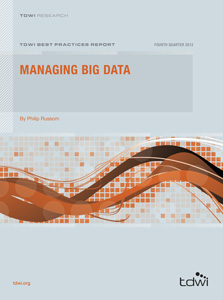
October 1, 2013
This Best Practices Report examines how organizations are leveraging their big data assets, the challenges they face, future trends in user practices and vendor tools, and 10 priorities for the years ahead.
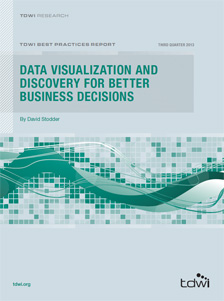
July 1, 2013
Good data visualization is critical to making smarter decisions and improving productivity. Download this report to learn how your organization can use data visualization, visual analytics, and data discovery to improve decision making, collaboration, and operational execution.
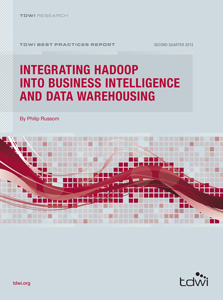
April 1, 2013
Hadoop promises to assist with the toughest challenges in BI today, including big data, advanced analytics, and multi-structured data. Download this TDWI Best Practices Report to learn how to integrate Hadoop into your business intelligence, analytics, data integration, and data warehousing technology stacks.
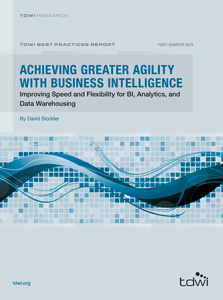
January 4, 2013
The information that flows from BI, analytics, and data warehousing systems can help organizations find a decision-making balance that avoids the extremes of snap decisions and rigid processes. This new survey-based research report examines benefits, barriers, technology solutions, and recommendations for achieving greater agility with business intelligence.
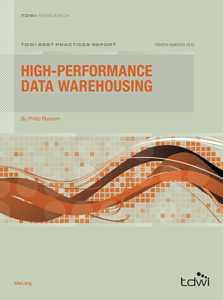
October 1, 2012
In the age of "big data," high-performance data warehousing is primarily about achieving speed and scale while also coping with increasing complexity and concurrency. The tips and strategies presented in this research can help user organizations prioritize their acquisition of vendor tools and their adoption of design best practices.
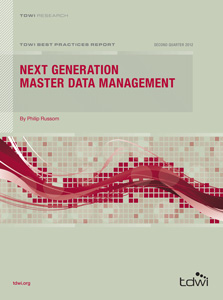
April 2, 2012
Master data management (MDM) is one of the most widely adopted data management disciplines of recent years. This report accelerates users’ understanding of the many new user best practices, solutions, and tools that have emerged as next generation MDM. It also helps readers map their options to real-world use cases and develop a strategy for MDM.
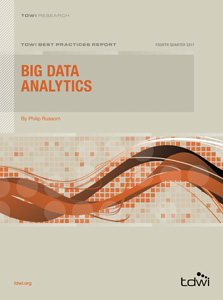
September 14, 2011
Big data analytics is the intersection of two technical entities that have come together. First, there’s big data for massive amounts of detailed information. Second, there’s advanced analytics, which can include predictive analytics, data mining, statistics, artificial intelligence, natural language processing, and so on. Put them together and you get big data analytics, the hottest new practice in BI.
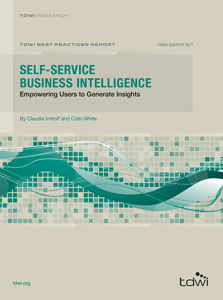
July 1, 2011
In today's economic environment, organizations must use business intelligence (BI) to make smarter, faster decisions. Yet, in too many organizations, decisions are still not based on business intelligence because of the inability to keep up with demand for information and analytics. To satisfy this demand, one approach involves setting up a self-service BI (SS BI) environment.
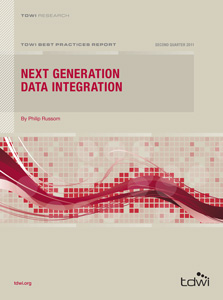
April 1, 2011
Data integration (DI) has undergone an impressive evolution in recent years. Today, DI is a rich set of powerful techniques, including ETL (extract, transform, and load), data federation, replication, synchronization, changed data capture, data quality, master data management, natural language processing, business-to-business data exchange, and more. This report brings readers up to date on all that's happening in this exciting arena of data management.